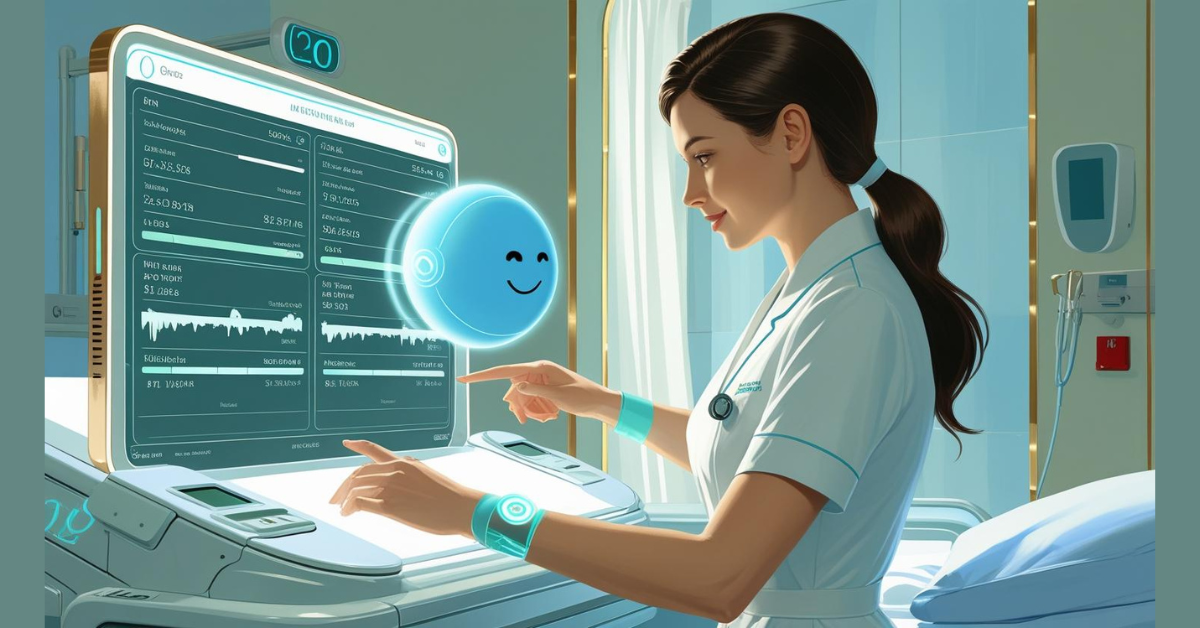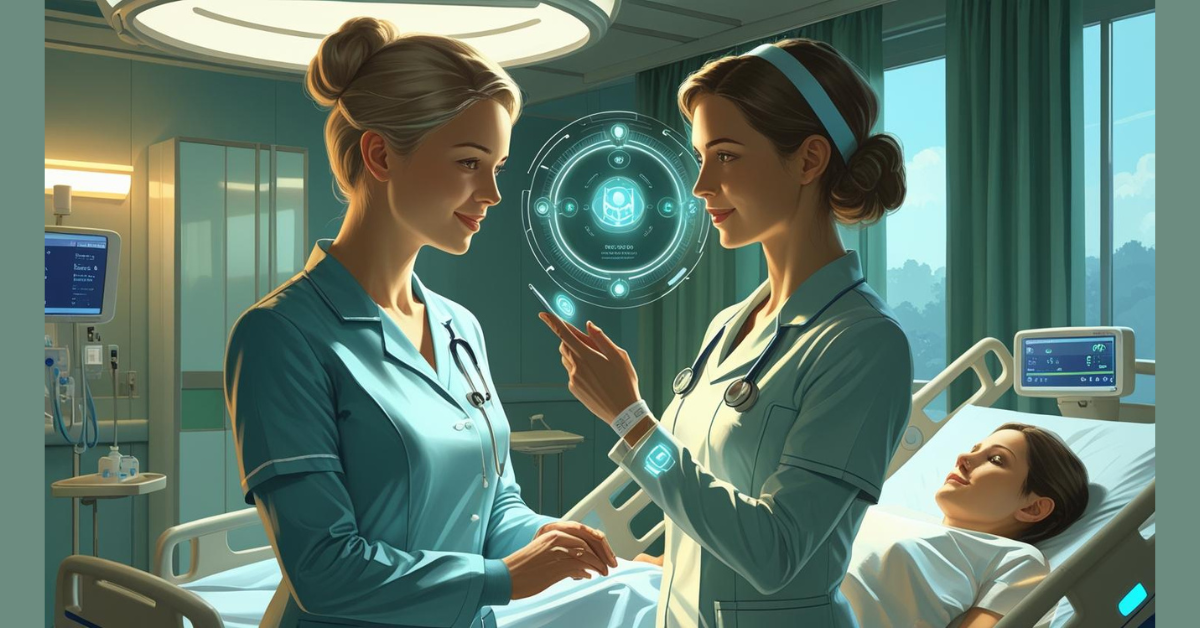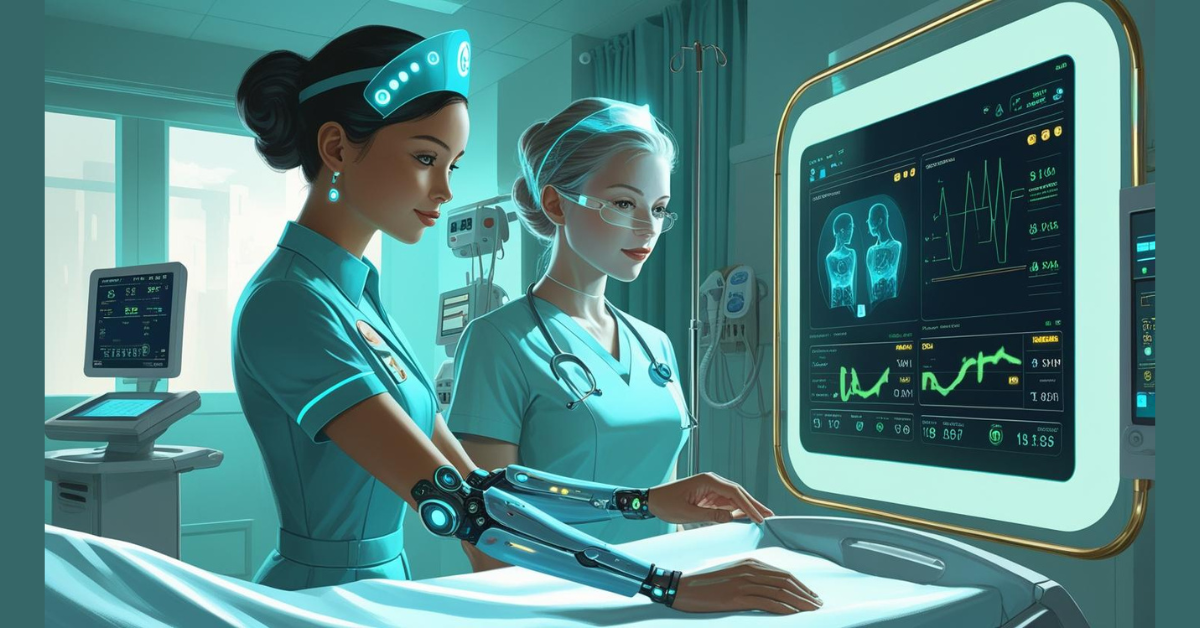The Artificial Intelligence in Critical Care Nursing Aiding Clinical Judgment Operation and Security of the Patient. AI techniques in critical care offer significant benefits such as real-time data analysis for early detection of patient deterioration automation of routine tasks and increased clinical expertise.
The Artificial Intelligence in Critical Care Nursing: Aiding Clinical Judgment, Operation, and Security of the Patient
The integration of synthetic intelligence in important care nursing represents an important transformation in how nurse`s technique affected character care, medical decision-making, and protection protocols. Rather than converting human expertise, AI serves as a powerful augmentation tool that enhances the brand new clinical reasoning that defines expert nursing workout in tremendous care environments.
AI algorithms can analyze vast amounts of patient data to support accurate diagnoses and personalized treatment plans. Additionally, AI chatbots and virtual assistants facilitate administrative tasks such as scheduling and documentation, allowing nursing staff to focus more on direct patient care.
Through advanced data analysis, AI can facilitate earlier and more accurate diagnoses, facilitate precise treatment planning, and promote continuous patient monitoring, all of which contribute to better care. An excellent example of AI’s impact is the use of predictive analytics.
By synthesizing the data from these studies, six themes related to the use of AI in nursing were identified: 1) risk identification, 2) health assessment, 3) patient triage, 4) research development, 5) improving patient care and records, and 6) developing care plans.
Augmenting Clinical Judgment through Intelligent Systems
Artificial intelligence can aid medical decision-making, specifically in regions like predicting physiologic deterioration, in which early intervention is crucial to stopping extreme damaging outcomes. This functionality transforms how nurses synthesize complicated affected person information, imparting computational aid that enhances their herbal medical instinct and experience.
This includes co-growing AI gear with nurses to make certain clean integration into medical paintings and to enhance, instead of undermine, medical judgment. The handiest AI implementations emerge from collaborative improvement methods that prioritize nurse enter and workflow integration, making sure that generation serves as a significant extension of medical know-how instead of a substitute for it.
A 2024 have a look at via way of means of Hassan and El-Ashry provide great advantages, together with the real-time information evaluation for the early detection of affected person deterioration, automation of ordinary tasks, and augmentation of medical know-how. This real-time analytical functionality allows nurses to discover diffused styles and adjustments that would in any other case move unnoticed, assisting greater proactive and unique medical interventions.
Revolutionizing Workflow Efficiency and Organization
This studies examines the outcomes of synthetic intelligence (AI)-primarily based totally selection help structures (DSS) at the operational approaches of nurses in essential care units (CCU) placed in Amman, Jordan. Recent research reveal that AI-powered selection help structures notably streamline nursing workflows with the aid of using automating recurring documentation, optimizing useful resource allocation, and offering shrewd scheduling capabilities.
Neonatal nurses in excessive-danger Neonatal Intensive Care Units (NICUs) navigate complex, time-touchy scientific choices wherein accuracy and judgment are essential. Generative synthetic intelligence (AI) has emerged as a supportive tool, but its integration increases issues approximately its effect on nurses` selection-making, expert autonomy, and organizational workflows.
The workflow transformation extends past person assignment automation to embody system-huge optimization. AI structures can examine affected person acuity levels, are expecting useful resource needs, and advocate most reliable personnel assignments, permitting nurse managers to allocate human sources extra efficiently even as retaining excessive requirements of care.
Advancing Patient Safety Through Predictive Analytics
Usually, in in depth affected person care, the task of AI structures is to offer chance estimates and help in selections through presenting predictions, which then want to be understood, interpreted and established through clinicians. This predictive functionality represents a paradigm shift from reactive to proactive affected person protection management.
All robot structures and gear are engineered to supply greater personalized, convenient, and smart clinical offerings to sufferers with inside the ICU, simultaneously aiming to lessen the considerable workload on ICU clinical body of workers and sell healing and care procedures. The integration of AI-powered robotics in important care creates extra layers of protection tracking and intervention capabilities.
AI-pushed affected person protection structures constantly display a couple of physiological parameters, remedy interactions, and scientific signs to become aware of ability negative occasions earlier than they occur. These structures can alert nurses to growing headaches inclusive of sepsis, cardiac occasions, or breathing failure, permitting well timed interventions that notably enhance affected person outcomes.
Addressing Implementation Challenges and Ethical Considerations
Nurses need to make certain that AI-pushed selections are equitable and do now no longer drawback any affected person groups, in particular the ones from marginalized communities. Training in moral AI use, bias recognition, and essential wondering is crucial to shield affected person safety. The success implementation of AI in essential care nursing calls for cautious interest to moral issues and capacity biases in algorithmic decision-making.
Perhaps nowhere else with inside the healthcare device than with inside the extensive care unit surroundings are the demanding situations to create beneficial fashions with direct time-essential scientific programs extra applicable and the barriers to accomplishing the ones desires extra massive. The complexity of the ICU surroundings offers specific demanding situations for AI implementation, requiring structures that may manage high-stakes, time-essential selections even as keeping the nuanced expertise that characterizes professional nursing practice.
The Future of AI-Enhanced Critical Care Nursing
The integration of synthetic intelligence (AI) in in depth care units (ICUs) offers each possibilities and demanding situations for crucial care nurses. This take a look at delves into the human factor, exploring how nurses with management roles understand the effect of AI on their expert exercise. Leadership views monitor each pleasure approximately AI`s ability and worries approximately retaining the human factors of nursing care.
For instance, AI‐pushed medical selection guide structures stand out as an example. These structures examine affected person data, provide evidence‐primarily based totally suggestions and help nurses in reaching unique diagnoses and remedy plans. The evolution closer to greater state-of-the-art AI-pushed medical selection guide guarantees to in addition beautify nursing exercise at the same time as retaining the crucial human factors of compassionate, professional care.
The destiny of AI in crucial care nursing lies now no longer with inside the substitute of human understanding however with inside the introduction of clever partnerships among era and nursing professionals. This collaboration guarantees to beautify medical judgment, optimize workflows, and develops affected person protection at the same time as retaining the essential values of nursing exercise that emphasize holistic, affected person-targeted care.
Read More:
https://nurseseducator.com/didactic-and-dialectic-teaching-rationale-for-team-based-learning/
https://nurseseducator.com/high-fidelity-simulation-use-in-nursing-education/
First NCLEX Exam Center In Pakistan From Lahore (Mall of Lahore) to the Global Nursing
Categories of Journals: W, X, Y and Z Category Journal In Nursing Education
AI in Healthcare Content Creation: A Double-Edged Sword and Scary
Social Links:
https://www.facebook.com/nurseseducator/
https://www.instagram.com/nurseseducator/
https://www.pinterest.com/NursesEducator/
https://www.linkedin.com/in/nurseseducator/
https://www.researchgate.net/profile/Afza-Lal-Din
https://scholar.google.com/citations?hl=en&user=F0XY9vQAAAAJ


